When mores are sufficient, laws are unnecessary. When mores are insufficient, laws are unenforceable.
EMILE DURKHEIMOne does not advance when one walks toward no goal, or – which is the same thing – when his goal is infinity.
More Emile Durkheim Quotes
-





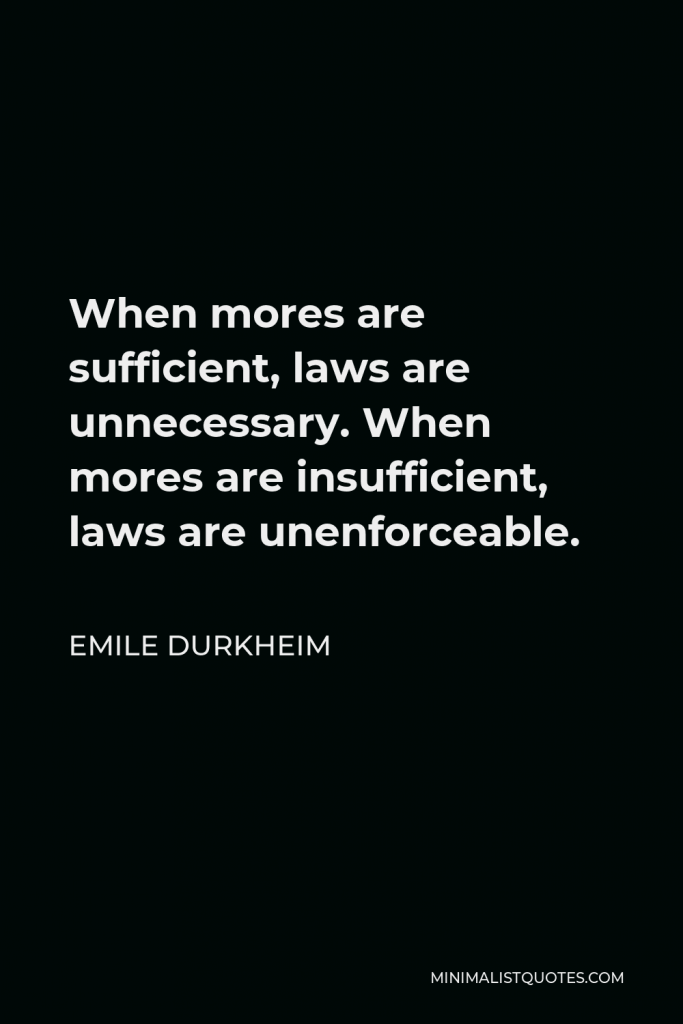

-





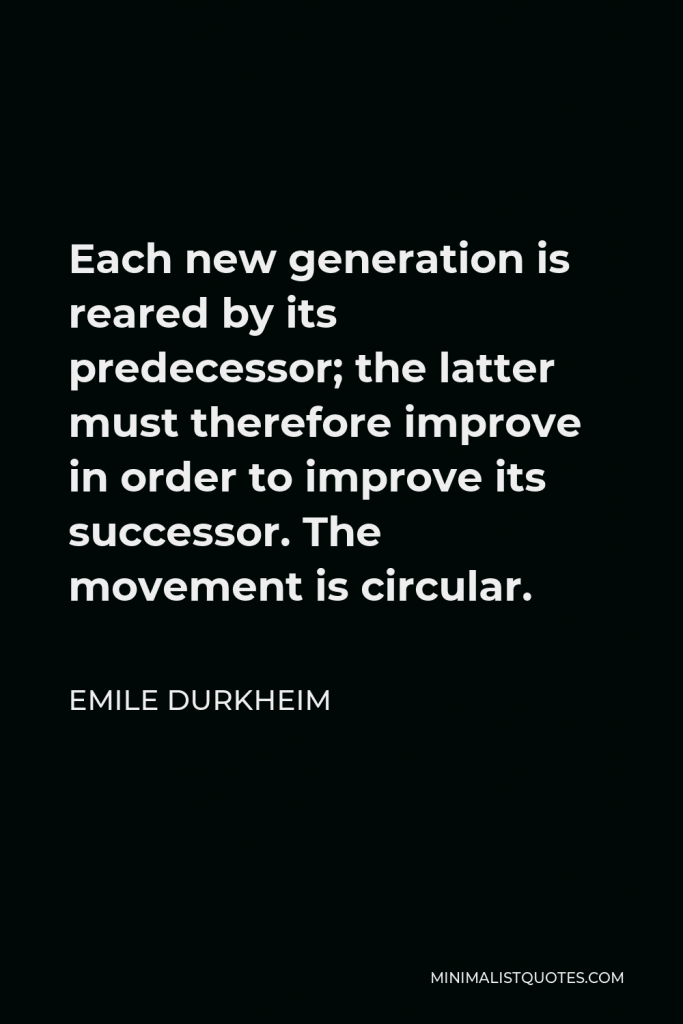

Each new generation is reared by its predecessor; the latter must therefore improve in order to improve its successor. The movement is circular.
EMILE DURKHEIM -







Faith is not uprooted by dialectic proof; it must already be deeply shaken by other causes to be unable to withstand the shock of argument.
EMILE DURKHEIM -







One does not advance when one walks toward no goal, or – which is the same thing – when his goal is infinity.
EMILE DURKHEIM -







Too cheerful a morality is a loose morality; it is appropriate only to decadent peoples and is found only among them.
EMILE DURKHEIM -





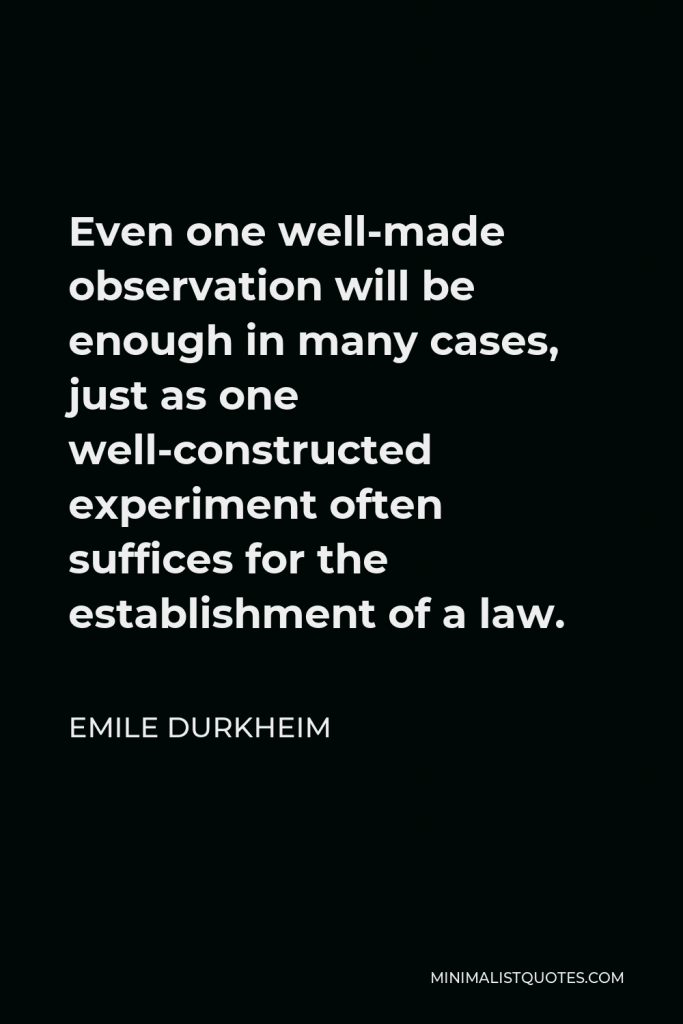

Even one well-made observation will be enough in many cases, just as one well-constructed experiment often suffices for the establishment of a law.
EMILE DURKHEIM -





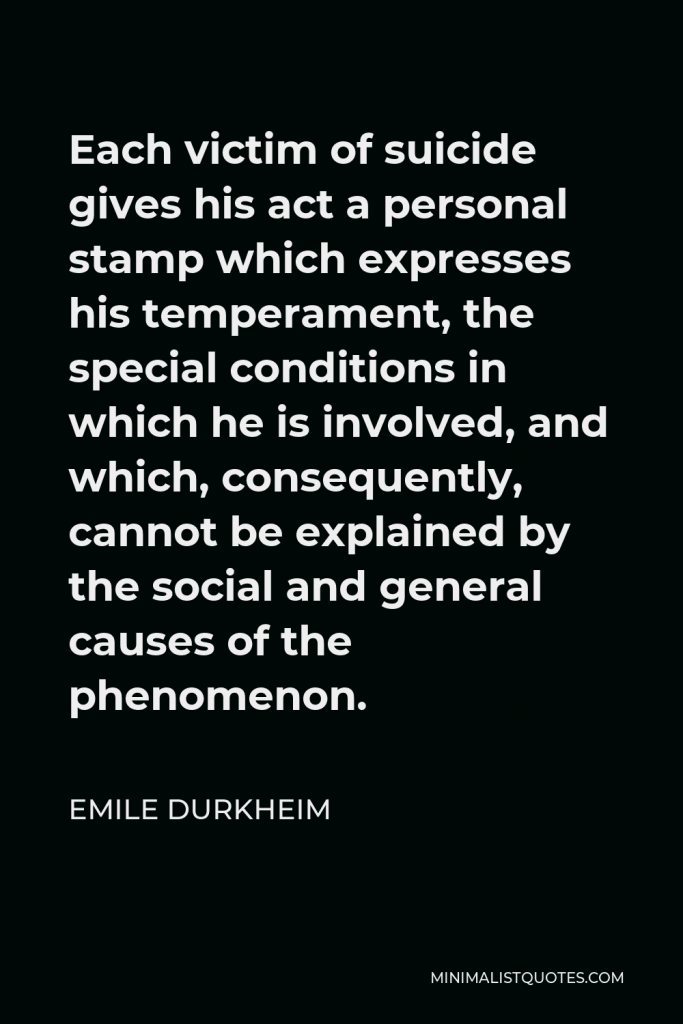

Each victim of suicide gives his act a personal stamp which expresses his temperament, the special conditions in which he is involved, and which, consequently, cannot be explained by the social and general causes of the phenomenon.
EMILE DURKHEIM -







The man whose whole activity is diverted to inner meditation becomes insensible to all his surroundings.
EMILE DURKHEIM -







Our whole social environment seems to us to be filled with forces which really exist only in our own minds.
EMILE DURKHEIM -





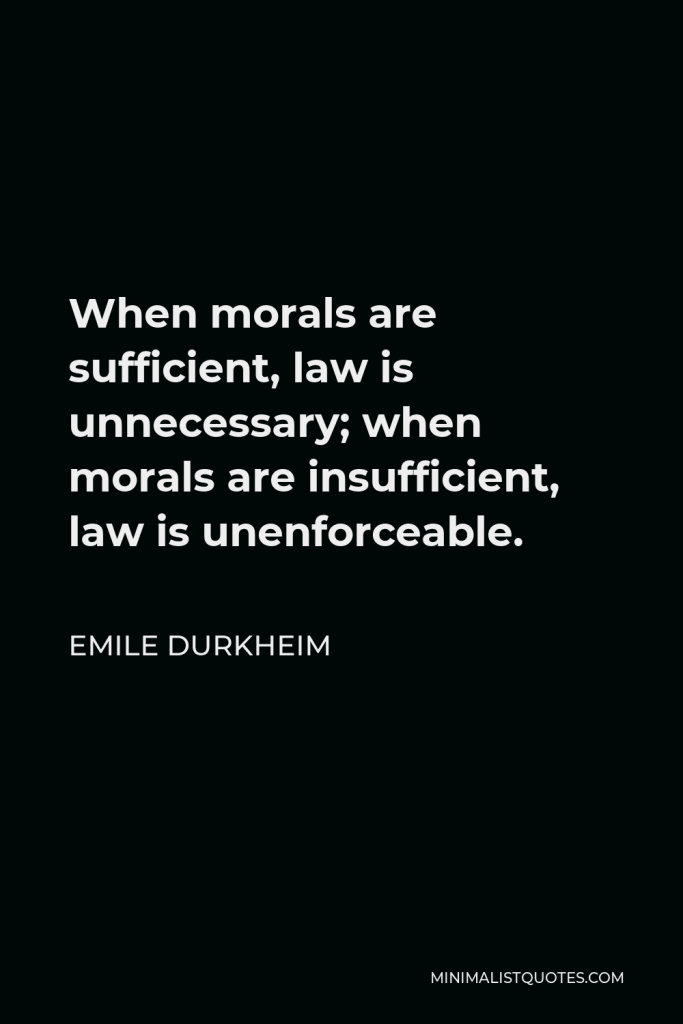

When morals are sufficient, law is unnecessary; when morals are insufficient, law is unenforceable.
EMILE DURKHEIM -





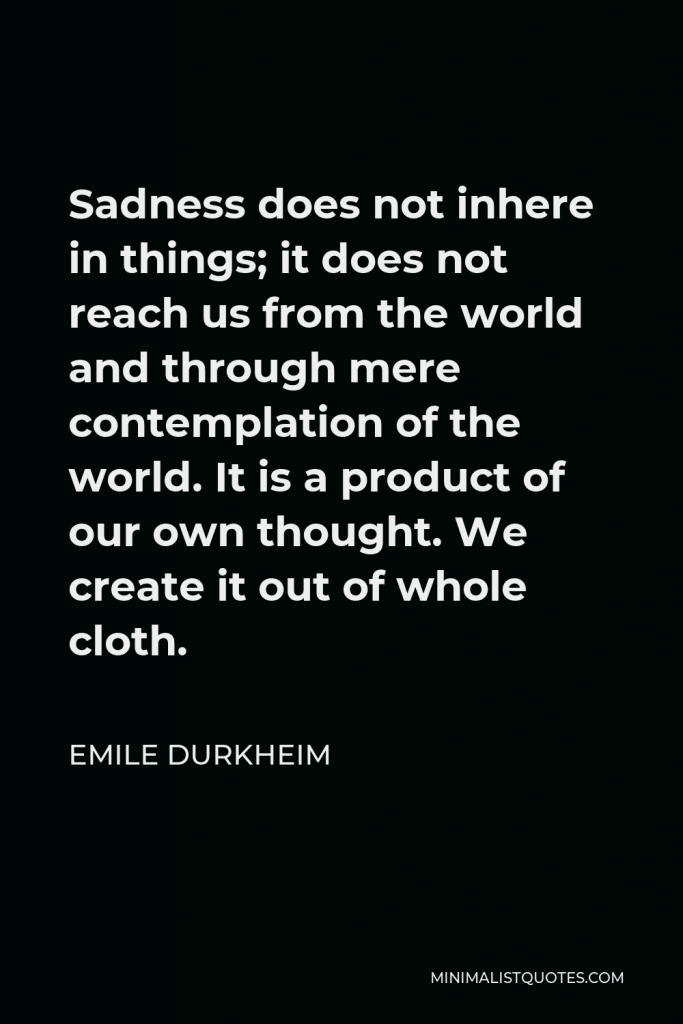

Sadness does not inhere in things; it does not reach us from the world and through mere contemplation of the world. It is a product of our own thought. We create it out of whole cloth.
EMILE DURKHEIM -







Man could not live if he were entirely impervious to sadness. Many sorrows can be endured only by being embraced, and the pleasure taken in them naturally has a somewhat melancholy character.
EMILE DURKHEIM -







Man is only a moral being because he lives in society, since morality consists in solidarity with the group, and varies according to that solidarity. Cause all social life to vanish, and moral life would vanish at the same time, having no object to cling to.
EMILE DURKHEIM -





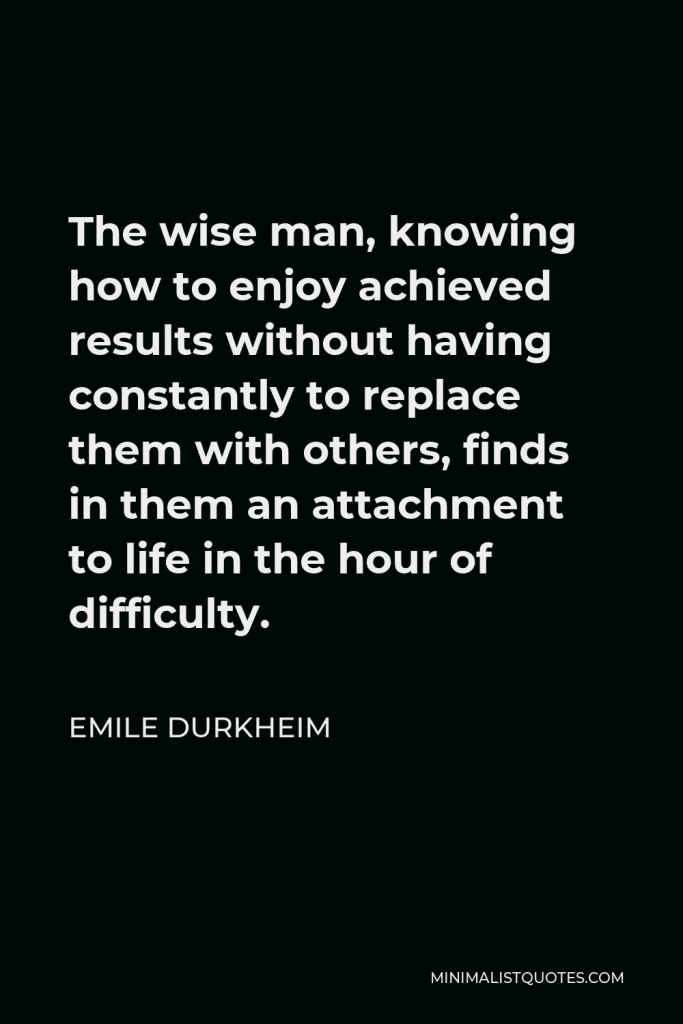

The wise man, knowing how to enjoy achieved results without having constantly to replace them with others, finds in them an attachment to life in the hour of difficulty.
EMILE DURKHEIM -





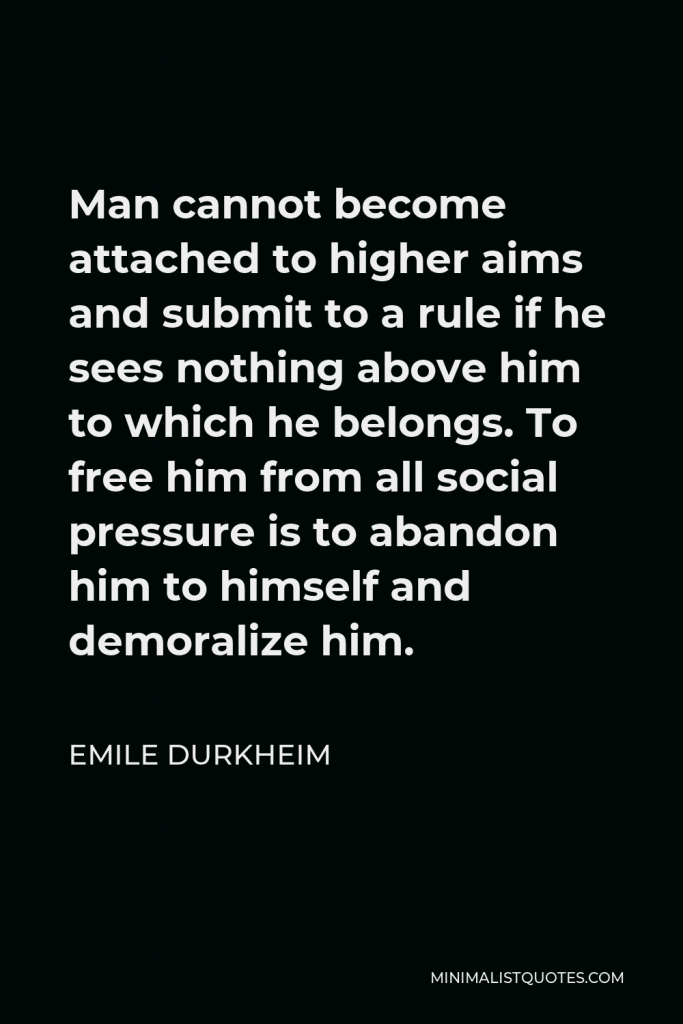

Man cannot become attached to higher aims and submit to a rule if he sees nothing above him to which he belongs. To free him from all social pressure is to abandon him to himself and demoralize him.
EMILE DURKHEIM -





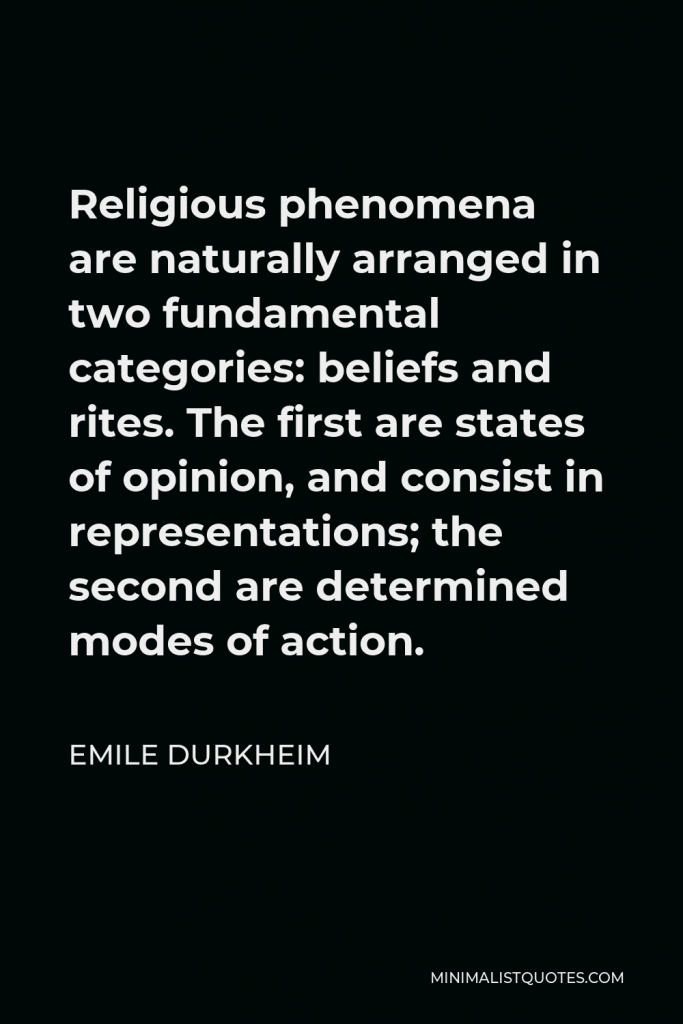

Religious phenomena are naturally arranged in two fundamental categories: beliefs and rites. The first are states of opinion, and consist in representations; the second are determined modes of action.
EMILE DURKHEIM







